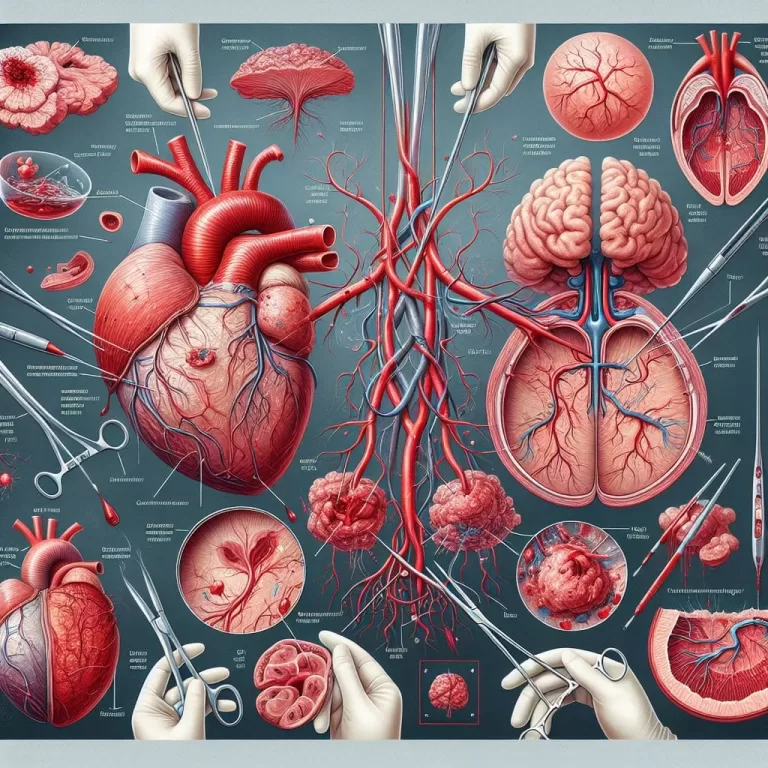Intracranial AVM
**Intracranial Arteriovenous Malformation (AVM)**
An intracranial arteriovenous malformation (AVM) is a congenital tangle of abnormal blood vessels connecting arteries and veins in the brain. This vascular abnormality disrupts normal blood flow, potentially leading to life-threatening complications such as hemorrhage, stroke, or seizures.
**Symptoms**
* Headaches
* Seizures
* Focal neurological deficits (e.g., weakness, numbness)
* Progressive cognitive impairment
**Diagnosis**
* Magnetic resonance imaging (MRI)
* Computed tomography angiography (CTA)
* Digital subtraction angiography (DSA)
**Treatment**
Treatment options for intracranial AVMs include:
* Endovascular embolization
* Radiosurgery
* Surgery
**Risk Factors**
* Family history
* Rendu-Osler-Weber syndrome
* Traumatic brain injury
**Complications**
* Hemorrhage (bleeding)
* Ischemic stroke
* Seizure disorders
* Neurocognitive deficits
**Prognosis**
Prognosis depends on several factors, including AVM location, size, and treatment response. Early diagnosis and timely management are crucial to improve outcomes.
Arteriovenous Malformation (AVM) Surgery: Comprehensive Overview

Three kinds of surgery are capable of treating an arteriovenous malformation, a tangle of blood vessels that impedes blood flow. An arteriovenous malformation (AVM) is a rare, noncancerous entanglement of blood vessels that prevents blood from flowing between your arteries…
